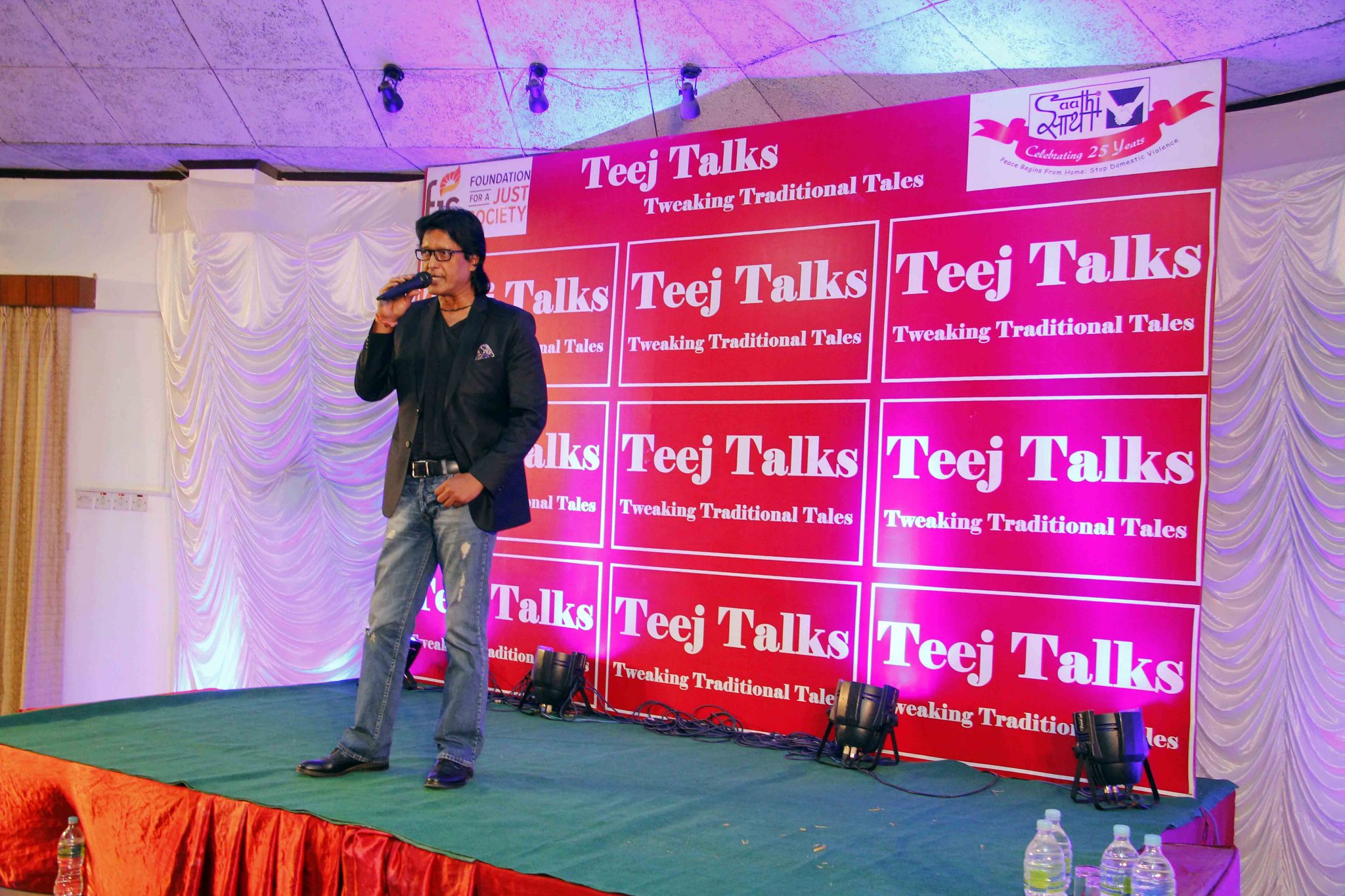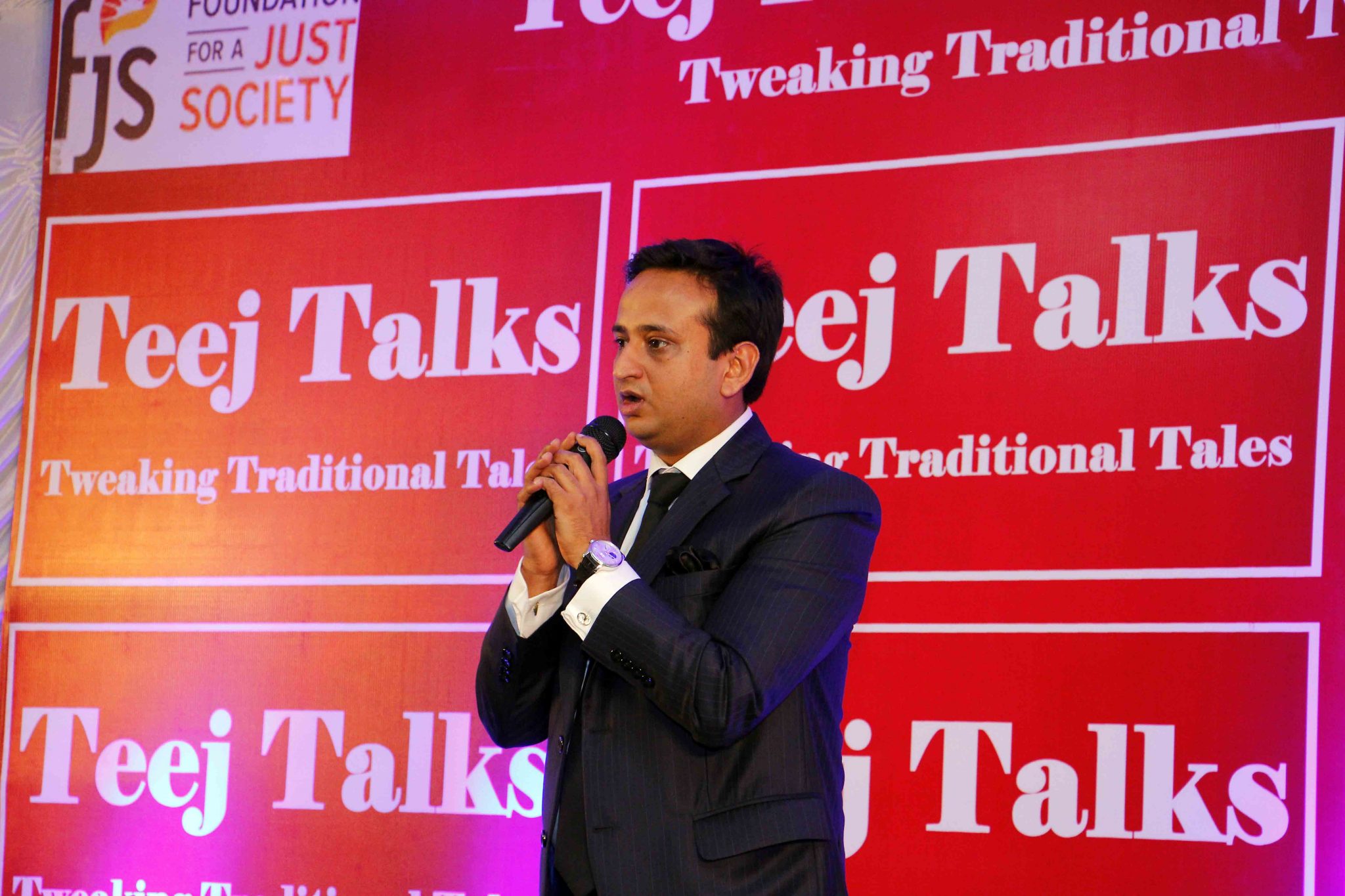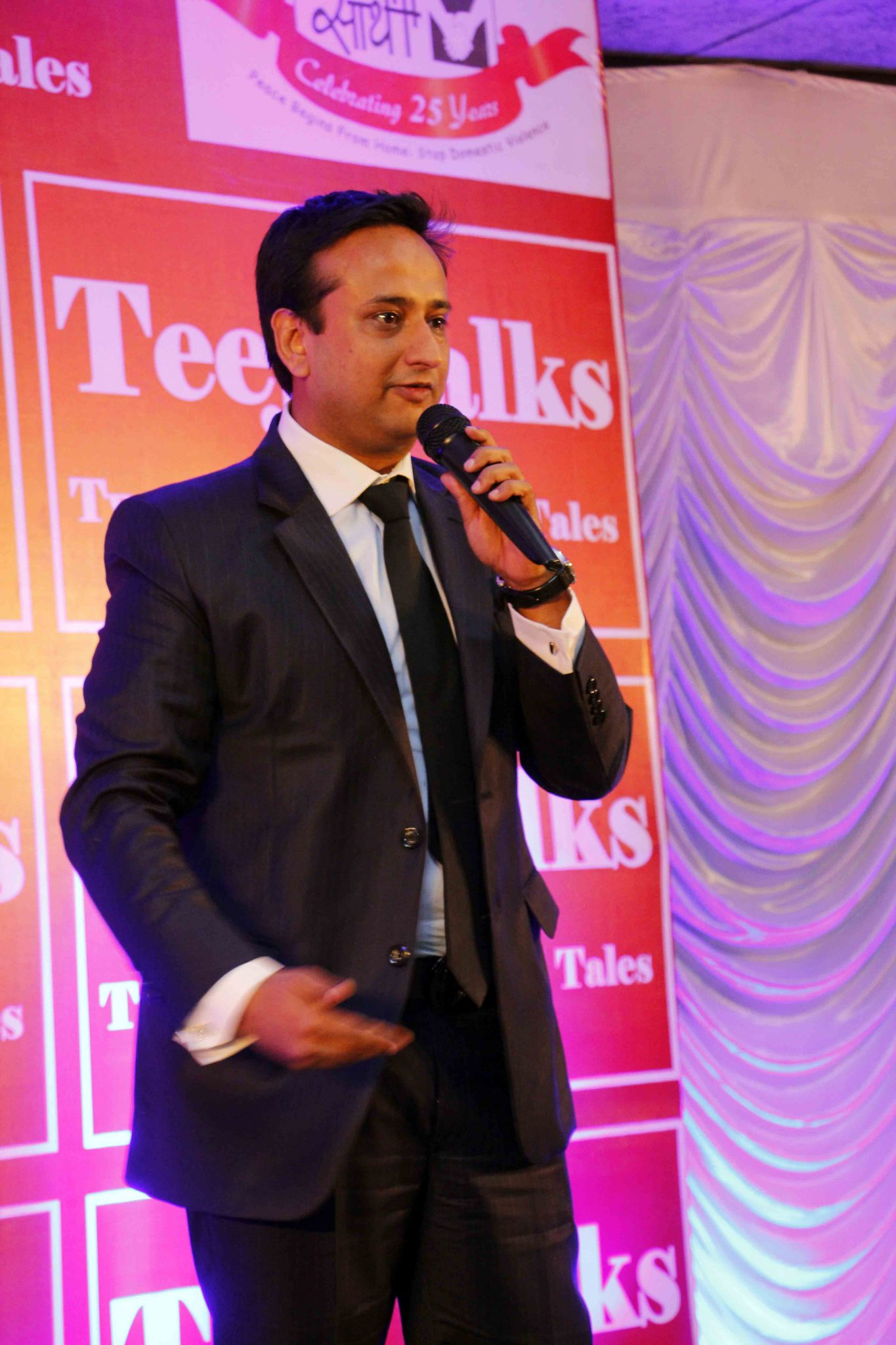Kathmandu, August 21, 2017: “The main theme of ‘Teej Talks, tweaking traditional tales’ has been to spread the message that tradition is a guide to promote harmony, not a tool to oppress any human being,” Mrs. Bandana Rana, UN CEDAW Committee Member, stressed on the theme of ‘Teej Talks’, a special program organized last Friday in Kathmandu. “Change starts from you. So, to abolish all harmful traditional practices, you need to stop following them or supporting them first,” expressed Rana.
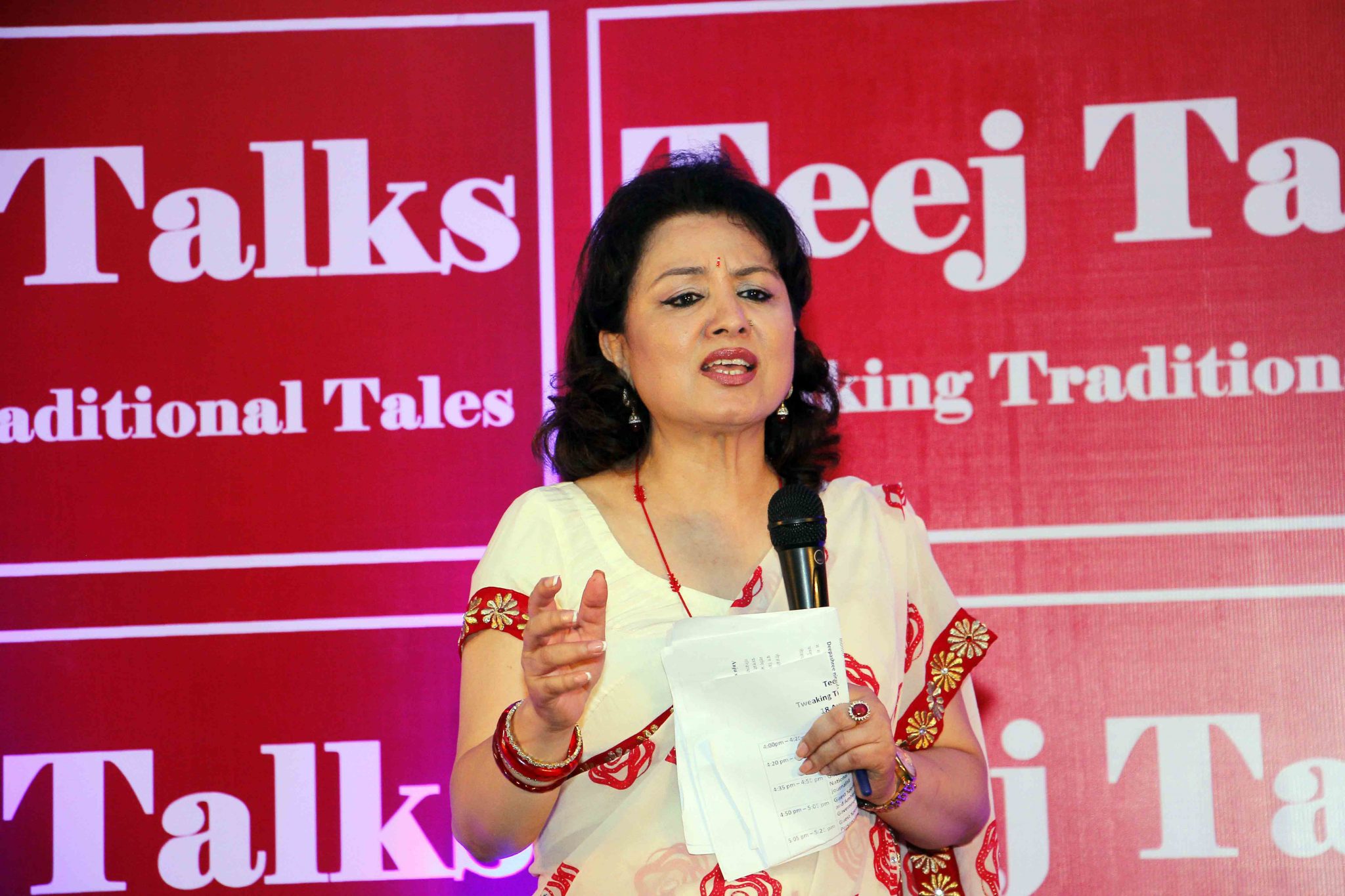
Yashoda Timsina, Commissioner at National Information Commission, talked about how Teej was a mysterious culture for her as a child. She used to think Teej was a festival to gather, dance and enjoy. But, now, she believes that Teej is a celebration of empowerment of women. She doesn’t follow any traditional belief or myths of menstruation. She visits churches, temples, mosques, and monasteries irrespective of her menstrual days. She believes that the myths related to menstruation are all man-made and can’t please the almighty.
“Ask your government why we get a public holiday on Rishi Panchami. As a woman, do we celebrate this to be purified after our menstrual cycle? By supporting this tradition, we are abiding by the belief that menstruation means impurity. So, it’s high time we get over these beliefs now because menstruation is not a sin, not an impurity, but rather a natural process of womanhood,” mentioned Timsina.
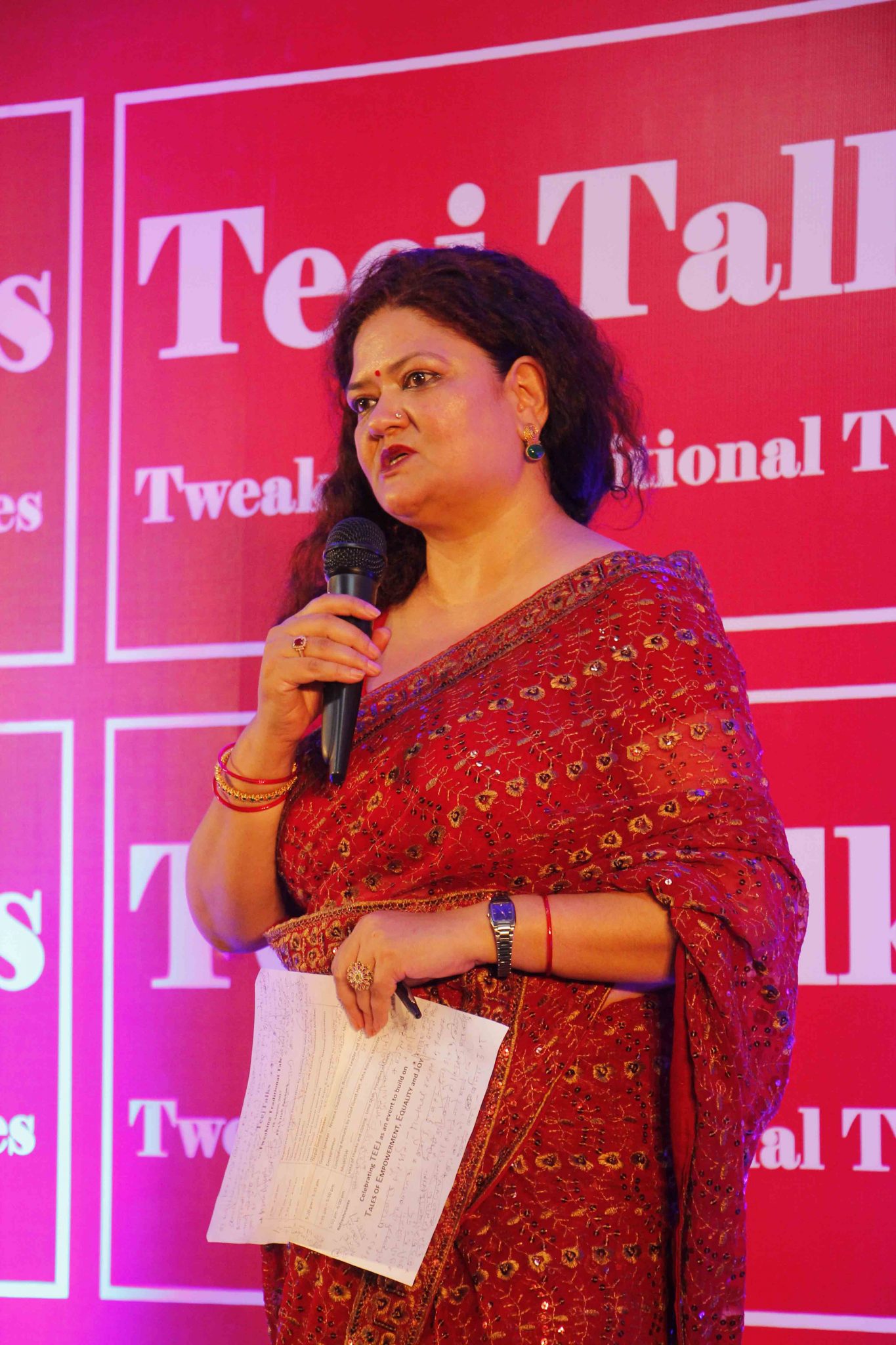
She also mentioned that it is every man’s responsibility to ensure that his wife is celebrating Teej as per her choice and health. In a bid to break traditional barriers, she shared how the relationship between fasting of a woman and longevity of her husband’s life seems scientifically illogical. “Teej is our culture; we don’t need to ban it. But, rather, we can modify the ways we celebrate it. Leaving by the harmful practices and taking forward the other cultural norms, we call can contribute in the formation of new Nepal,” she added.
Rajesh Hamal, renowned Nepali actor, who calls himself a liberal thinker, pointed out on his belief that the best way to do anything, is to do it without force and obligation. As per him, the social and professional hierarchy is created in the society because of different capabilities, but that doesn’t give anyone the right to harm anyone’s dignity.
Talking about the threats of social evils, he shared, “Not all the traditions and cultures are bad, but a change is obviously needed today. We can’t go on following each and every tradition of our society without once thinking why we celebrate it and what impact it has. Change is mandatory, and that must be according to time and situation. We all should attempt to dislodge the roots of evil practices in our society and apt for a change.”
Malvika Subba, Miss Nepal 2002, recalled how she had to face gender barriers after her marriage. She expressed, “I used to ponder upon why I should be following all these practices when my husband doesn’t. Why should I be considered inferior for having breasts and a vagina? I was prohibited a lot of things as a woman, but I revolted against all the beliefs and fought my journey alone. “She also mentioned instances of abusive comments against her from the public when she posted her photo during pregnancy. However, that didn’t stop her from enjoying the beautiful feeling of motherhood.
“I don’t impose my values to others and I wouldn’t even let anyone impose their values on me. If any tradition makes you feel weak just because of your gender, don’t follow it at all. I feel powerful as a woman and none can change that. Teach your daughter to be whoever they are, keeping aside the insecurities for being a woman,” she added.
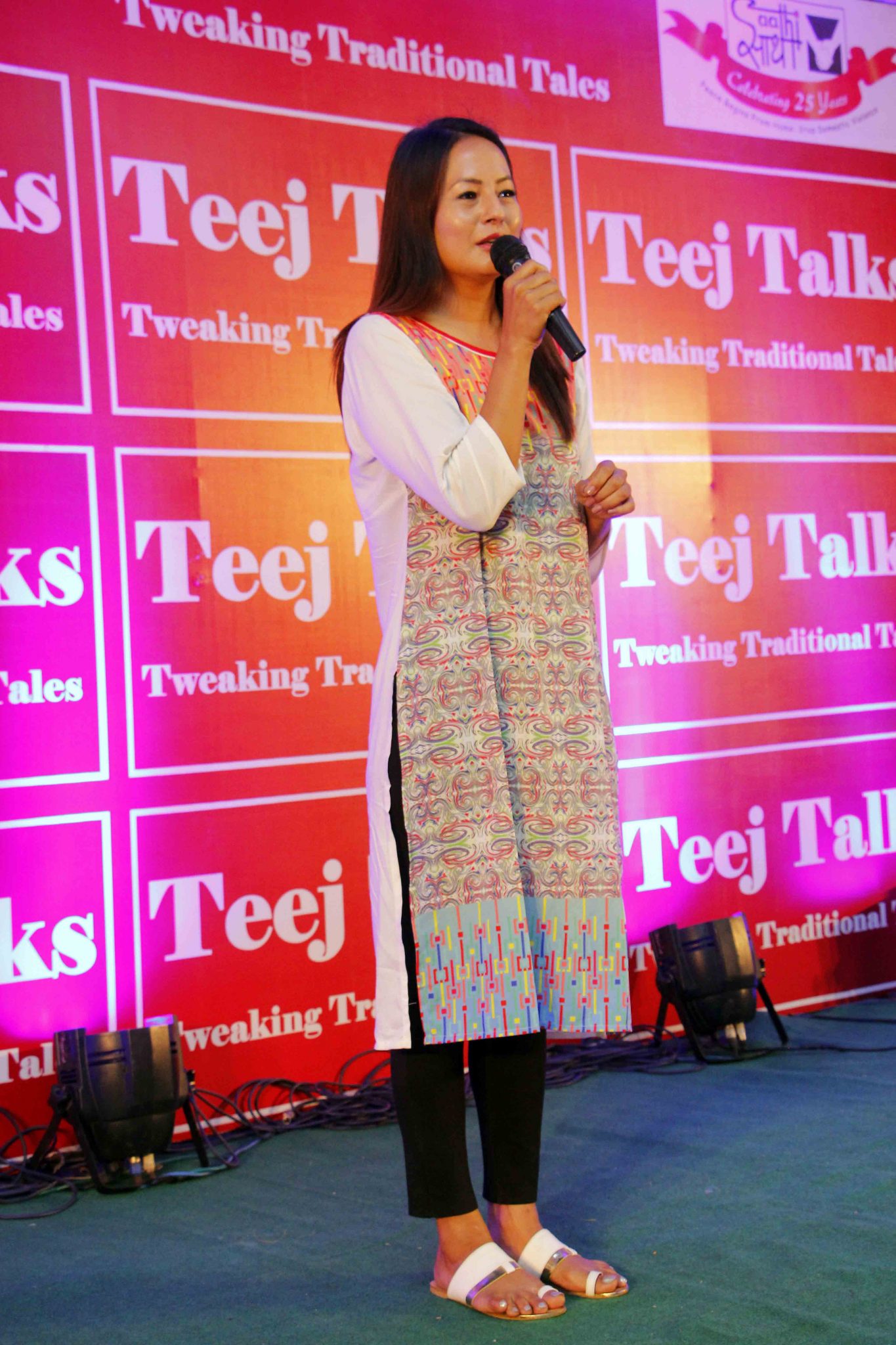
Nirvana Chaudhary, MD of Chaudhary Group, reflected on Teej symbolizing a day when women talk about safety and equality. “I am what I am because of my mother. A woman is the eye of the nation. And, the real success of a country depends on how it treats its women,” he opined. It was after his trip with Bill Gates and Melinda Gates that he learned the influential roles of women. Later, it hit him with a question on what could he do on his level to create gender quality.
He added, “If we males have created the mess in the lives of women, it is our responsibility to change the situation. I wanted to start the change from my own level, and I did.” CG has made more than 3000 homes in earthquake affected areas in these 2 years with one criteria that one woman in each house would be trained for livelihood. That is how they have trained 15000 women and also inducted women entrepreneurs into their company. He revealed that his formula to bring gender equality was to improve the education and livelihood of women.
The chief guest of the event, Mrs. Asha Koirala, Minister of Women, Children and Social Welfare, emphasized on the need for women to be leaders. “Develop your interpersonal skills; come out of your homes and lead, women. Yesterday’s patriarchal society doesn’t suit the nation anymore. Time has changed and we need to change our mindsets too. Change starts within, so be the change and break the stereotypes,” she highlighted.
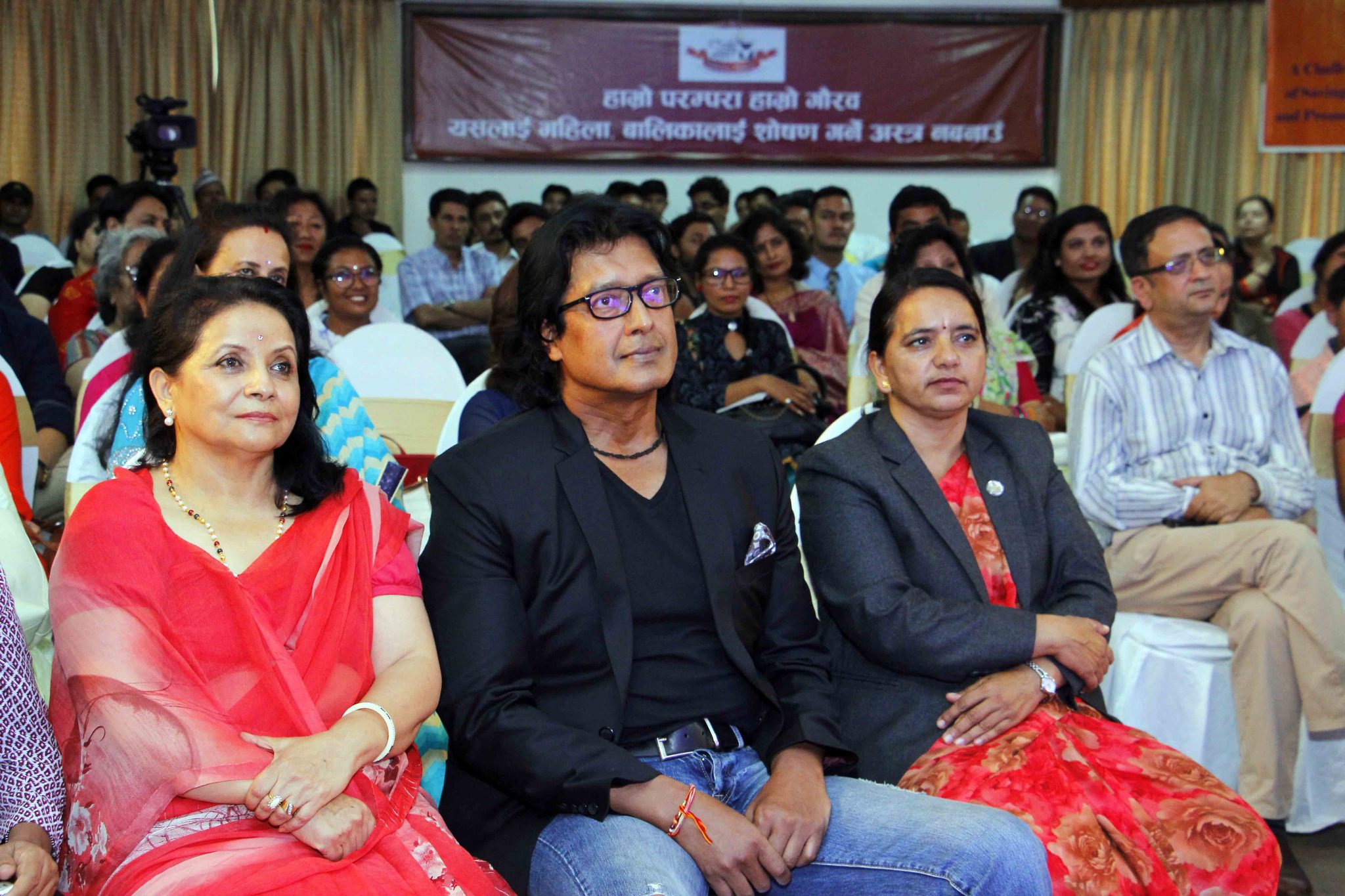
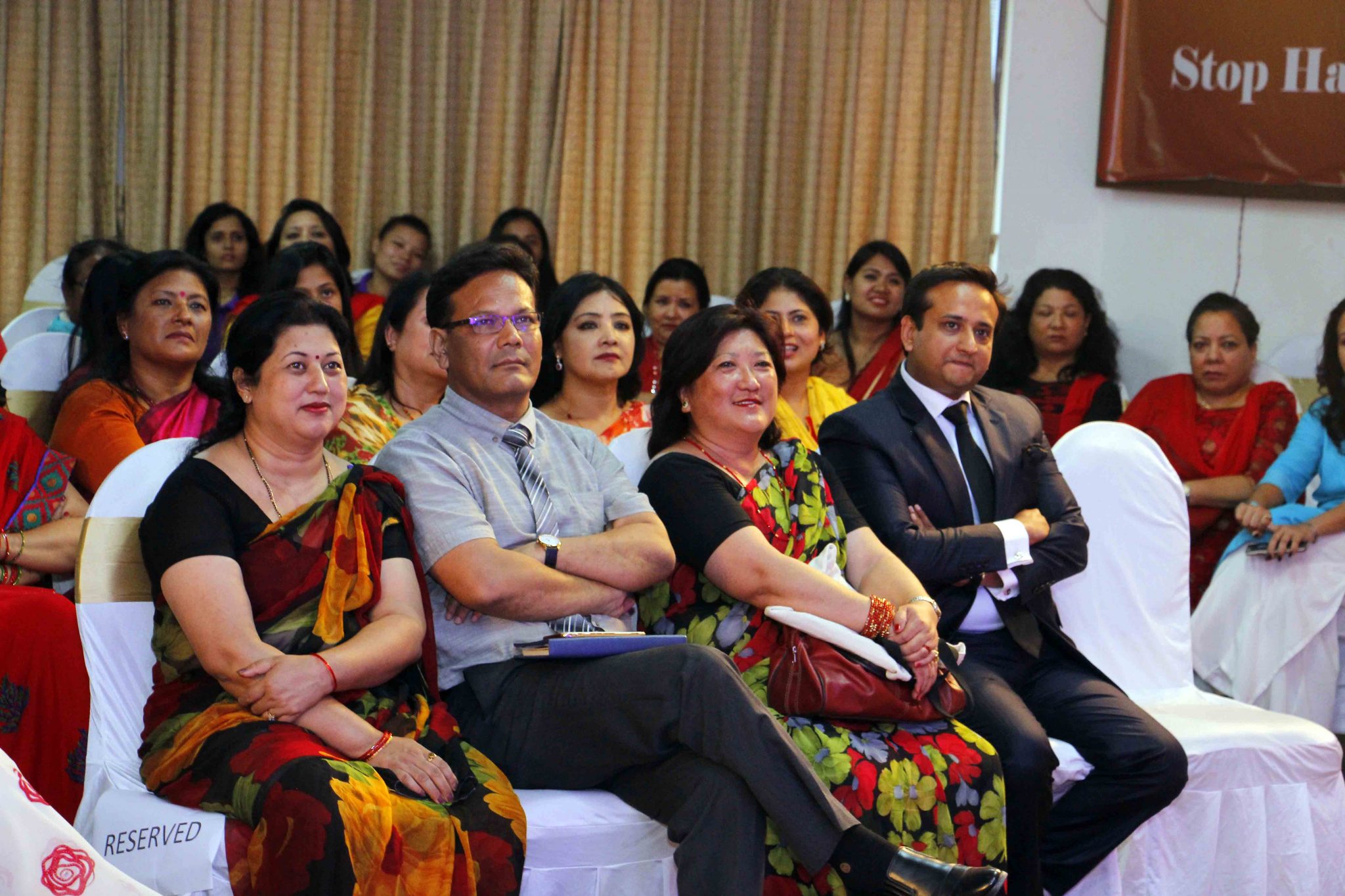
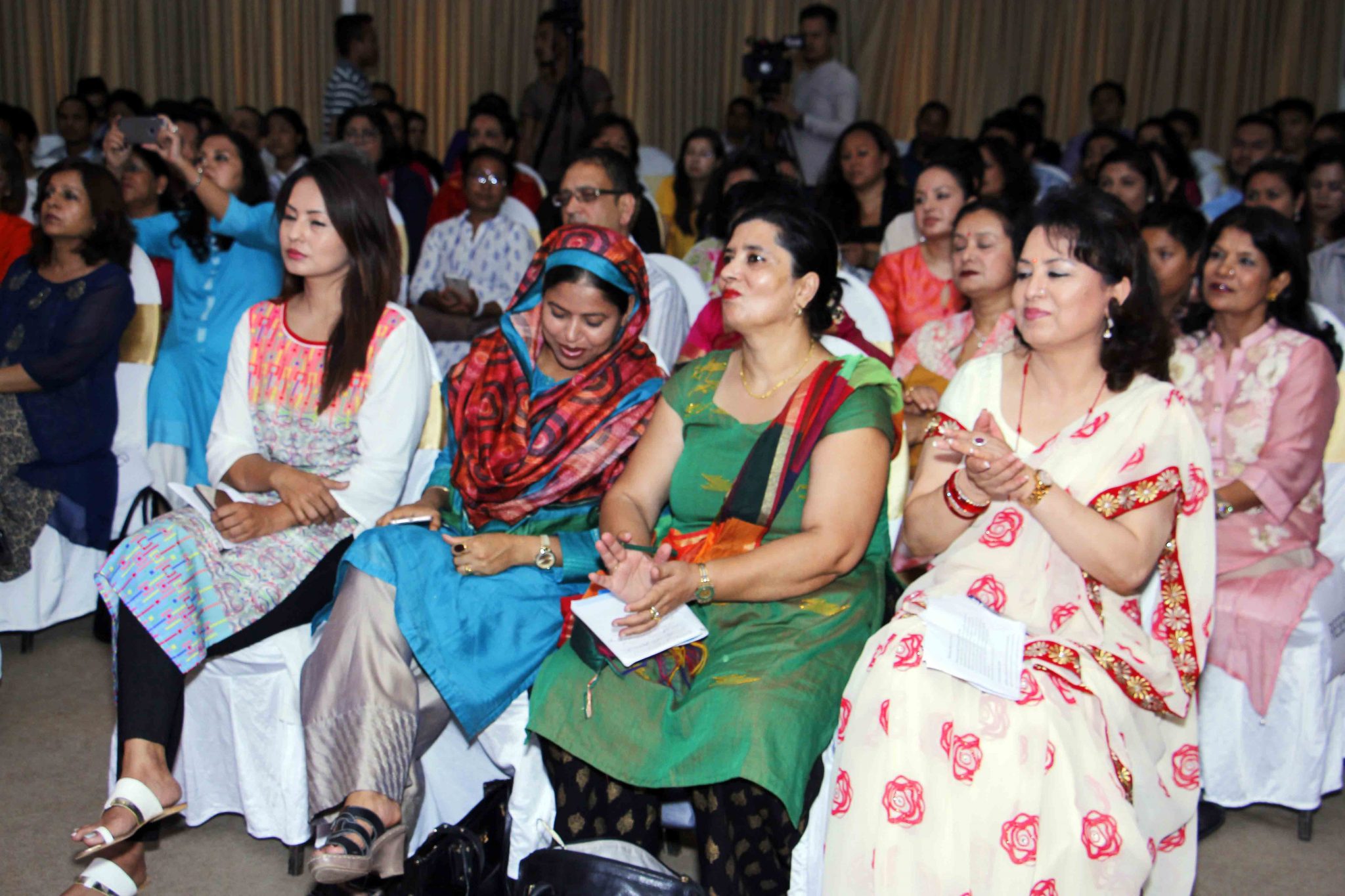
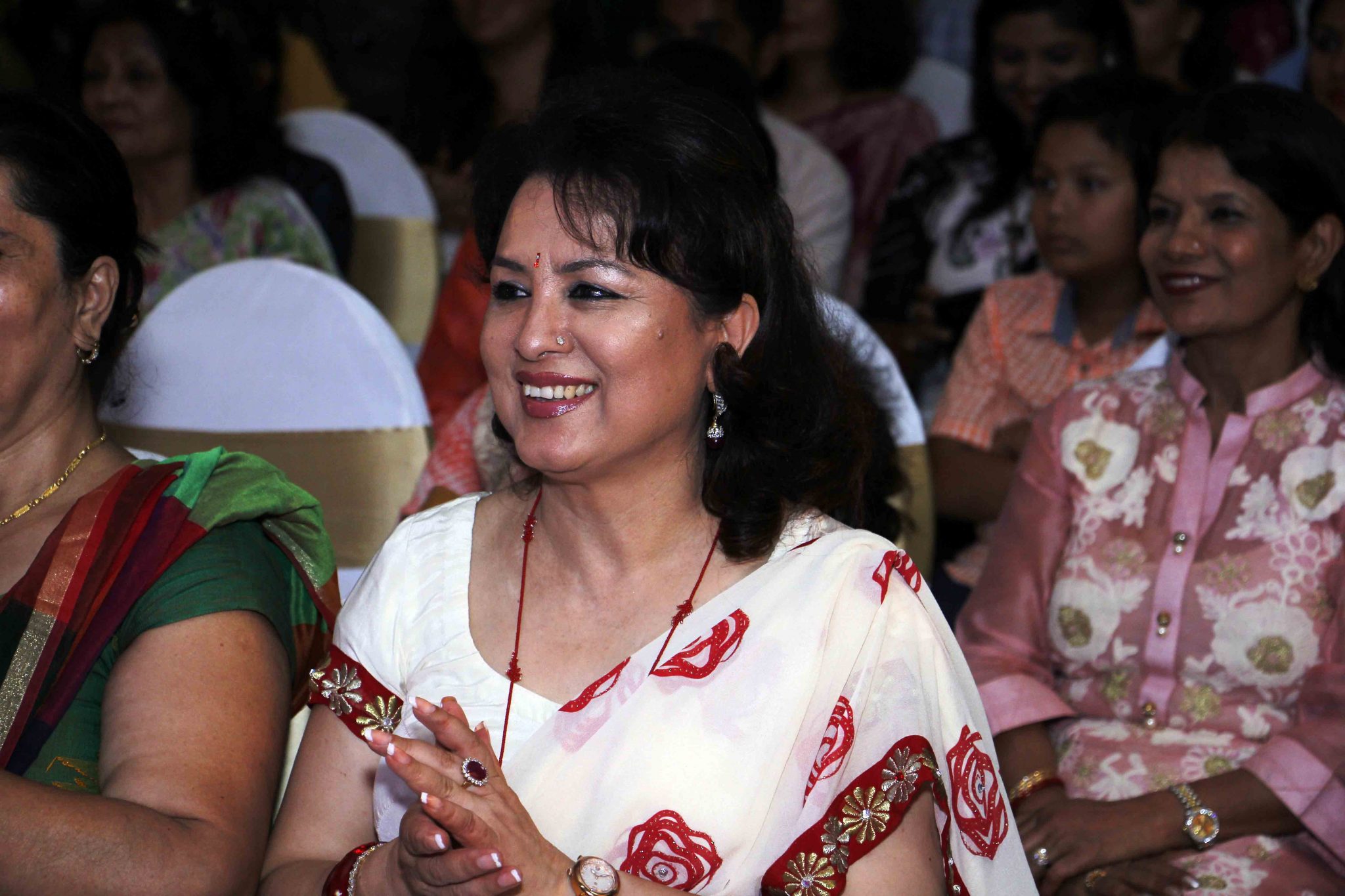
By Drishti Maharjan

